Videos by Steven Vanden Broecke
VRT, Radio 1, "De Wereld van Sofie" (Sofie Lemaire), 16 June 2021
10 views
For the full podcast series In Dutch, made by Julie Van Bogaert (Ghent University), see: https://... more For the full podcast series In Dutch, made by Julie Van Bogaert (Ghent University), see: https://soundcloud.com/user-711326240 14 views
Papers by Steven Vanden Broecke
Erudition and the Republic of Letters, 2023
Scholars have tended to focus on Gassendi's relations with the mathematical, naturalphilosophical... more Scholars have tended to focus on Gassendi's relations with the mathematical, naturalphilosophical, and erudite interlocutors he encountered in the Republic. This sits uneasily with the fact that Gassendi's time in the Spanish Netherlands was about three times as long as his stay in the Republic (i.e., six weeks vs. two weeks). Drawing on the deep engagement with eschatology and divination of Gassendi's close friend Govaert Wendelen (1580-1667) in the period between 1626 and 1632, this paper raises two questions. First, which natural-philosophical culture did Gassendi encounter in the Spanish Netherlands? Second, which similarities and divergences between Gassendi and his interlocutors does this encounter allow us to discern more clearly?
Early Science and Medicine, 2023
Our introduction to a special issue of Early Science and Medicine 28/1

Early Science and Medicine, 2023
In articulating the uses of their art, late-medieval astrologers often invoked the maxim that "th... more In articulating the uses of their art, late-medieval astrologers often invoked the maxim that "the wise man will rule the stars" (sapiens dominabitur astris). However, it is by no means clear whether this invocation sought to emphasize 'domination' over the natural and social world, or the ontological self-government that is at stake in the pursuit of 'wisdom'. Many historians have interpreted the past pursuit of astrology in terms of an interest in dominance over the natural and social world. Taking inspiration from a recent 'ascetic turn' in the history of early modern science and philosophy, however, this article argues that late-medieval astrology was approached and appreciated as an art of selfgovernment (both in body and in soul) and uncovers what this entailed. In so doing, we also demonstrate that the undifferentiated view of astrology as a pre-modern counterpart of modern prospective knowledge practices is anachronistic.

Centaurus, 2022
Especially after the 1610s, Tridentine Catholicism
forcefully reasserted itself as a prominent po... more Especially after the 1610s, Tridentine Catholicism
forcefully reasserted itself as a prominent political and intellectual
force in the Spanish Netherlands. Integrating this reality into
accounts of Spanish-Netherlandish science in the 17th century has
been a considerable challenge for historians of science. The latter
either turned their gazes elsewhere or assumed a fundamental
incompatibility between “science” and “religion,” thus securing one
dominant explanation for the classic thesis that the Spanish
Netherlands largely “lost the plot” of the so-called Scientific
Revolution after the 1620s. This paper turns to a local debate on
Thomas Fienus's embryological theses (1620), which has never
been studied, to test the underlying assumption that “science” and
“religion” can be taken as two distinct and/or opposed categories
of historical analysis. I show that this assumption not only fails to
capture historical actors' experiences and understandings, but also
that it fails to consider how tensions between medicine and
theology were positively productive. First, I argue that medical
philosophizing was positively motivated by socio-religious concerns
of its own. Second, I show that, far from being a protracted battle
between two stable positions, the debate constituted an instance
of boundary work, where medical philosophers like Fienus
progressively tested and repositioned the theological credentials of
their preferred theses. This ushered in the adoption of a
probabilistic epistemology that increasingly secured Catholic
theology's normative credibility and the pursuit of autonomous
natural-philosophical inquiry.

Scholarship has come to value the uncertainties haunting early modern knowledge cultures; indeed,... more Scholarship has come to value the uncertainties haunting early modern knowledge cultures; indeed, awareness of the fragility and plurality of knowledge is now offered as a key element for understanding early modern science as a whole. Yet early modern actors never questioned the possibility of certainty itself and never objected to the notion that truth is out there, universal, and therefore safe from human manipulation. This book investigates how early modern actors managed not to succumb to postmodern relativism, despite the increasing uncertainties and blatant disagreements about the nature of God, Man, and the Universe. An international and interdisciplinary team of experts in fields ranging from the history of science to theology and the history of ideas analyses a number of practices that were central to maintaining and functionalizing the notion of absolute truth. Through such an interdisciplinary research the book shows how certainty about truth could be achieved, and how ea...

Lias. Journal of Early Modern Intellectual Culture and its Sources, 2020
Some of the most ambitious attempts by astronomer-astrologers to rethink their art's epistemic fo... more Some of the most ambitious attempts by astronomer-astrologers to rethink their art's epistemic foundations and predictive methods appeared around the middle of the seventeenth century, at the very time when astrology was rapidly becoming marginalised in European academic culture. The French physician-astrologer Jean-Baptiste Morin (1583-1656) offers the most spectacular illustration of this phenomenon. Morin's Astrologia Gallica (1661) constituted what is arguably the most complete attempt to theorise astrology's multidisciplinary foundations, and to systematise its interpretive methodology, in the art's 2,500 year-long history. This paper argues that the aforementioned seventeenth-century attempts at revamping astrology shared many of the deeper epistemic, theological, and political concerns that were the driving forces behind the work of Morin's philosophical acquaintances (e.g., Descartes, Gassendi, or Mersenne), even if the solutions were different. More specifically, I argue that just as post-Tridentine Catholic theology and spirituality demonstrably shaped the work of these philosophical novatores, so Morin's project represents the point where the astrological tradition was similarly transformed by this shared religious context.
Making Truth in Early Modern Catholicism, 2021
Jalobeanu D., Wolfe C.T. (eds) Encyclopedia of Early Modern Philosophy and the Sciences. Springer, Cham, 2020
Contingency and Natural Order in Early Modern Science, eds. Pietro Daniel Omodeo & Rodolfo Garau, 2019

Ambix, 2017
It is well known that John Dee presented the Monas Hieroglyphica (1564) as the
basis for a whole... more It is well known that John Dee presented the Monas Hieroglyphica (1564) as the
basis for a wholesale transformation of early modern knowledge culture – a
claim that raises obvious issues of epistemic credibility. This paper discusses
the social techniques that Dee proposed as a solution to these issues. First,
our reconstruction of the “socio-epistemic imaginary” that Dee conveyed in
the Monas shows how the marriage between a traditional rhetoric of secrecy
and a courtly politicising of natural philosophy allowed Dee to invent social
distinctions between credible and false purveyors of true knowledge.
Second, a comparison with Willem Silvius’s other scientific print productions
of the 1560s shows how Dee’s socio-epistemic solutions to the problem of
knowledge were also promoted by local Galenic physicians taking in hand
the challenges of the medical marketplace. However, it also had to contend
with alternative socio-epistemic imaginaries, promoted by Paracelsian physicians
and more lowly alchemists, which primarily defined knowledge communities
as moral communities of Christian charity.

Lias. Journal of Early Modern Intellectual Culture and its Sources, 2015
Between 1631 and 1634, the Low Countries were home to a print debate on the reality
and legitima... more Between 1631 and 1634, the Low Countries were home to a print debate on the reality
and legitimacy of Copernicanism. Unlike the more famous events which simultaneously
unfolded in Rome, participants of this debate were not only separated by cosmological
positions, but also by confessional allegiances. This paper focuses on the contributions
to the debate of the Catholic theologian Libertus Fromondus (1587-1653). Fromondus’
anti-Copernican writings are often held to illustrate the extent to which, by the second
quarter of the 17th century, Catholic attitudes towards Copernicanism were overdetermined
by confessional polemics and Rome’s socio-cultural interests in maintaining a
monopoly on Scriptural exegesis. This paper argues for a more nuanced reading of
Fromondus’ concerns over Copernicanism, which takes into account his specific interpretation
of human salvation and its relation to human reason and the Church. For
Fromondus, there was nothing inherently dangerous about Copernicanism; even after
Galileo’s 1633 inquisition trial, he repeatedly suggested that there was room for Copernicans
in the Catholic Church. However, he did think that Copernicanism could encourage
an erosion of true human religio towards God if used imprudently and with unbridled
imagination and enthusiasm, and that it could open the door to heresy and atheism. His
anti-Copernican writings addressed perceived challenges of the use of human reason on
the possibility of salvation, not the potential impact of doctrinal or exegetical disobedience
on Roman authority.
From Masha'allah to Kepler, eds. Charles Burnett & Dorian Gieseler Greenbaum, 2014
A Companion to Astrology in the Renaissance (Brill, 2014)
British Journal for the History of Science, Mar 2013



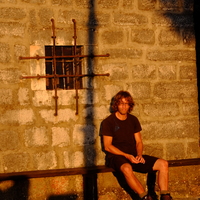

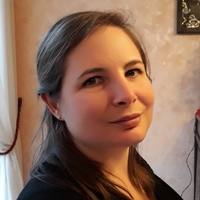

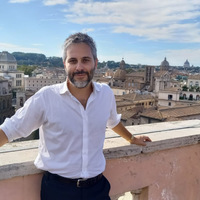
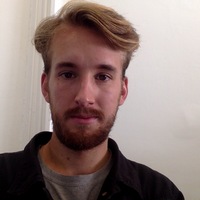

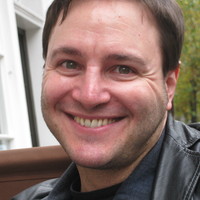
Uploads
Videos by Steven Vanden Broecke
Papers by Steven Vanden Broecke
forcefully reasserted itself as a prominent political and intellectual
force in the Spanish Netherlands. Integrating this reality into
accounts of Spanish-Netherlandish science in the 17th century has
been a considerable challenge for historians of science. The latter
either turned their gazes elsewhere or assumed a fundamental
incompatibility between “science” and “religion,” thus securing one
dominant explanation for the classic thesis that the Spanish
Netherlands largely “lost the plot” of the so-called Scientific
Revolution after the 1620s. This paper turns to a local debate on
Thomas Fienus's embryological theses (1620), which has never
been studied, to test the underlying assumption that “science” and
“religion” can be taken as two distinct and/or opposed categories
of historical analysis. I show that this assumption not only fails to
capture historical actors' experiences and understandings, but also
that it fails to consider how tensions between medicine and
theology were positively productive. First, I argue that medical
philosophizing was positively motivated by socio-religious concerns
of its own. Second, I show that, far from being a protracted battle
between two stable positions, the debate constituted an instance
of boundary work, where medical philosophers like Fienus
progressively tested and repositioned the theological credentials of
their preferred theses. This ushered in the adoption of a
probabilistic epistemology that increasingly secured Catholic
theology's normative credibility and the pursuit of autonomous
natural-philosophical inquiry.
basis for a wholesale transformation of early modern knowledge culture – a
claim that raises obvious issues of epistemic credibility. This paper discusses
the social techniques that Dee proposed as a solution to these issues. First,
our reconstruction of the “socio-epistemic imaginary” that Dee conveyed in
the Monas shows how the marriage between a traditional rhetoric of secrecy
and a courtly politicising of natural philosophy allowed Dee to invent social
distinctions between credible and false purveyors of true knowledge.
Second, a comparison with Willem Silvius’s other scientific print productions
of the 1560s shows how Dee’s socio-epistemic solutions to the problem of
knowledge were also promoted by local Galenic physicians taking in hand
the challenges of the medical marketplace. However, it also had to contend
with alternative socio-epistemic imaginaries, promoted by Paracelsian physicians
and more lowly alchemists, which primarily defined knowledge communities
as moral communities of Christian charity.
and legitimacy of Copernicanism. Unlike the more famous events which simultaneously
unfolded in Rome, participants of this debate were not only separated by cosmological
positions, but also by confessional allegiances. This paper focuses on the contributions
to the debate of the Catholic theologian Libertus Fromondus (1587-1653). Fromondus’
anti-Copernican writings are often held to illustrate the extent to which, by the second
quarter of the 17th century, Catholic attitudes towards Copernicanism were overdetermined
by confessional polemics and Rome’s socio-cultural interests in maintaining a
monopoly on Scriptural exegesis. This paper argues for a more nuanced reading of
Fromondus’ concerns over Copernicanism, which takes into account his specific interpretation
of human salvation and its relation to human reason and the Church. For
Fromondus, there was nothing inherently dangerous about Copernicanism; even after
Galileo’s 1633 inquisition trial, he repeatedly suggested that there was room for Copernicans
in the Catholic Church. However, he did think that Copernicanism could encourage
an erosion of true human religio towards God if used imprudently and with unbridled
imagination and enthusiasm, and that it could open the door to heresy and atheism. His
anti-Copernican writings addressed perceived challenges of the use of human reason on
the possibility of salvation, not the potential impact of doctrinal or exegetical disobedience
on Roman authority.
forcefully reasserted itself as a prominent political and intellectual
force in the Spanish Netherlands. Integrating this reality into
accounts of Spanish-Netherlandish science in the 17th century has
been a considerable challenge for historians of science. The latter
either turned their gazes elsewhere or assumed a fundamental
incompatibility between “science” and “religion,” thus securing one
dominant explanation for the classic thesis that the Spanish
Netherlands largely “lost the plot” of the so-called Scientific
Revolution after the 1620s. This paper turns to a local debate on
Thomas Fienus's embryological theses (1620), which has never
been studied, to test the underlying assumption that “science” and
“religion” can be taken as two distinct and/or opposed categories
of historical analysis. I show that this assumption not only fails to
capture historical actors' experiences and understandings, but also
that it fails to consider how tensions between medicine and
theology were positively productive. First, I argue that medical
philosophizing was positively motivated by socio-religious concerns
of its own. Second, I show that, far from being a protracted battle
between two stable positions, the debate constituted an instance
of boundary work, where medical philosophers like Fienus
progressively tested and repositioned the theological credentials of
their preferred theses. This ushered in the adoption of a
probabilistic epistemology that increasingly secured Catholic
theology's normative credibility and the pursuit of autonomous
natural-philosophical inquiry.
basis for a wholesale transformation of early modern knowledge culture – a
claim that raises obvious issues of epistemic credibility. This paper discusses
the social techniques that Dee proposed as a solution to these issues. First,
our reconstruction of the “socio-epistemic imaginary” that Dee conveyed in
the Monas shows how the marriage between a traditional rhetoric of secrecy
and a courtly politicising of natural philosophy allowed Dee to invent social
distinctions between credible and false purveyors of true knowledge.
Second, a comparison with Willem Silvius’s other scientific print productions
of the 1560s shows how Dee’s socio-epistemic solutions to the problem of
knowledge were also promoted by local Galenic physicians taking in hand
the challenges of the medical marketplace. However, it also had to contend
with alternative socio-epistemic imaginaries, promoted by Paracelsian physicians
and more lowly alchemists, which primarily defined knowledge communities
as moral communities of Christian charity.
and legitimacy of Copernicanism. Unlike the more famous events which simultaneously
unfolded in Rome, participants of this debate were not only separated by cosmological
positions, but also by confessional allegiances. This paper focuses on the contributions
to the debate of the Catholic theologian Libertus Fromondus (1587-1653). Fromondus’
anti-Copernican writings are often held to illustrate the extent to which, by the second
quarter of the 17th century, Catholic attitudes towards Copernicanism were overdetermined
by confessional polemics and Rome’s socio-cultural interests in maintaining a
monopoly on Scriptural exegesis. This paper argues for a more nuanced reading of
Fromondus’ concerns over Copernicanism, which takes into account his specific interpretation
of human salvation and its relation to human reason and the Church. For
Fromondus, there was nothing inherently dangerous about Copernicanism; even after
Galileo’s 1633 inquisition trial, he repeatedly suggested that there was room for Copernicans
in the Catholic Church. However, he did think that Copernicanism could encourage
an erosion of true human religio towards God if used imprudently and with unbridled
imagination and enthusiasm, and that it could open the door to heresy and atheism. His
anti-Copernican writings addressed perceived challenges of the use of human reason on
the possibility of salvation, not the potential impact of doctrinal or exegetical disobedience
on Roman authority.
Friday 8 December 2017, 9:00 - 17:00
Organization: Jonathan Regier (FWO, UGent) & Steven Vanden Broecke (UGent)